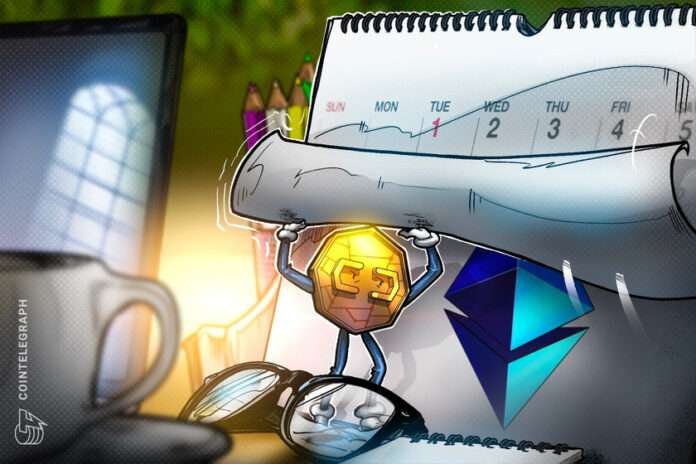A majority of the validators are withdrawing their staking rewards rather than the whole 32 staked ETH.

News
Ethereum mainnet successfully completed the Shapella upgrade on April 12. The successful execution of the Shapella upgrade means Ethereum validators can finally withdraw their staked Ether on the Beacon chain.
A total of 126,955.07 ETH were withdrawn by validators at the time of writing. Presently, 248,043 out of the 559,549 active validators, or about 44% of them, have the ability to request a partial or full withdrawal. The majority of withdrawals currently vary between 2.8- 3.2 ETH, indicating the majority of the validators are only withdrawing their staking rewards.

The average price of staked ETH is $3,149 and it could be another reason why validators are not withdrawing the whole amount. The ETH price is currently trading just under $2,000 with the price acting as key resistance.

Major crypto exchanges have announced their support for the ETH unstaking with several exchanges already processing withdrawal requests. Coinbase, the world’s first publicly listed crypto exchange announced that ETH unstaking is now live on their platform.
The Shapella Upgrade is complete. Congratulations to the @Ethereum community! ETH unstaking is now enabled on https://t.co/bCG11KNnW0. https://t.co/JcTxAVphGZ
— Coinbase (@coinbase)
BitGo’s chief operating officer Chen Fang took to Twitter to announce that the custodian has upgraded to Shapella successfully and ETH withdrawals are now live on the platform.
Kraken on the other hand started withdrawing validators for their United States customers on April 11 and began processing withdrawals of ETH after the completion of the Shapella upgrade. The early withdrawal of validators by the exchange is caused by the U.S. Securities and Exchange Commission action brought against Kraken’s Ethereum staking product back in February.
For clarity:
Validators are currently able to exit but the associated 32 ETH stake and consensus layer rewards are not able to be withdrawn (aka moved around) until Shapella goes live in around 12 hours
What Kraken is doing right now is exiting their validators
— sassal.eth (@sassal0x)
Related: Upcoming Shapella upgrade fuels liquid staking growth — AMA with Swell
Kraken Australia Managing Director Jonathon Miller told Cointelegraph that even though such a high quantity of ETH unstaking might cause some price volatility it will bring users to the ecosystem in the long run. He explained:
“Whilst this unlocking event may create conditions for an exodus from the staking protocol, the ability to freely stake and unstake (in accordance with bonding periods specified by the protocol) could equally attract many ETH holders. The move to unstaking could see a massive movement of assets into Ethereum staking pools.”
Binance the leading crypto exchange by trading volume said it will support the Shappela upgrade and start the withdrawal processing requests starting from April 19. The crypto exchange also added that the withdrawal request can take upto 15 days to process due to processing limitations.
#Binance will support $ETH 2.0 Staking withdrawals starting from April 19, 08:00 UTC.
Due to the processing limitations on the $ETH network, ETH withdrawal requests may take up to 15 days to several weeks to be fully processed.
More details here ?https://t.co/L3iyon58lo
— Binance (@binance)
Bitfinex, one of the leading crypto exchanges congratulated the Ethereum community on the successful upgrade and said the ETH withdrawal details will be shared soon.
Magazine: 2023 is a make-or-break year for blockchain gaming: Play-to-own
Post Disclaimer
The information provided in our posts or blogs are for educational and informative purposes only. We do not guarantee the accuracy, completeness or suitability of the information. We do not provide financial or investment advice. Readers should always seek professional advice before making any financial or investment decisions based on the information provided in our content. We will not be held responsible for any losses, damages or consequences that may arise from relying on the information provided in our content.



